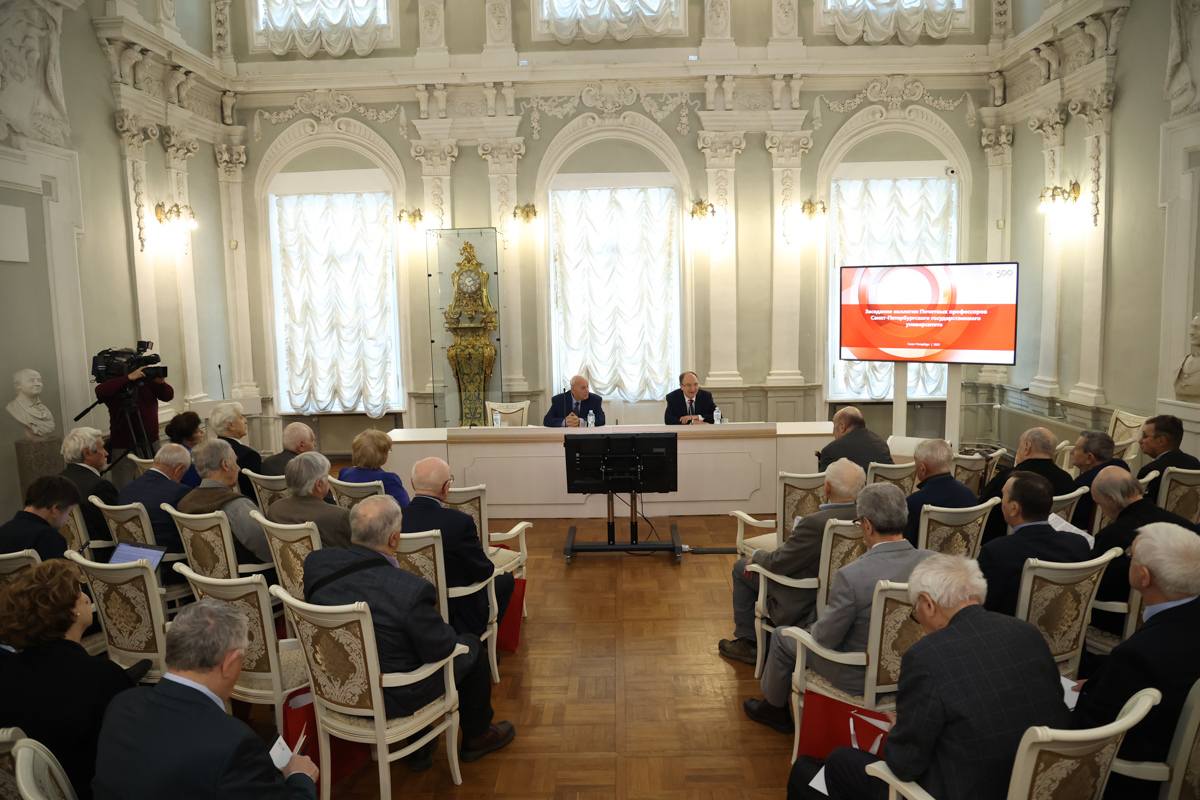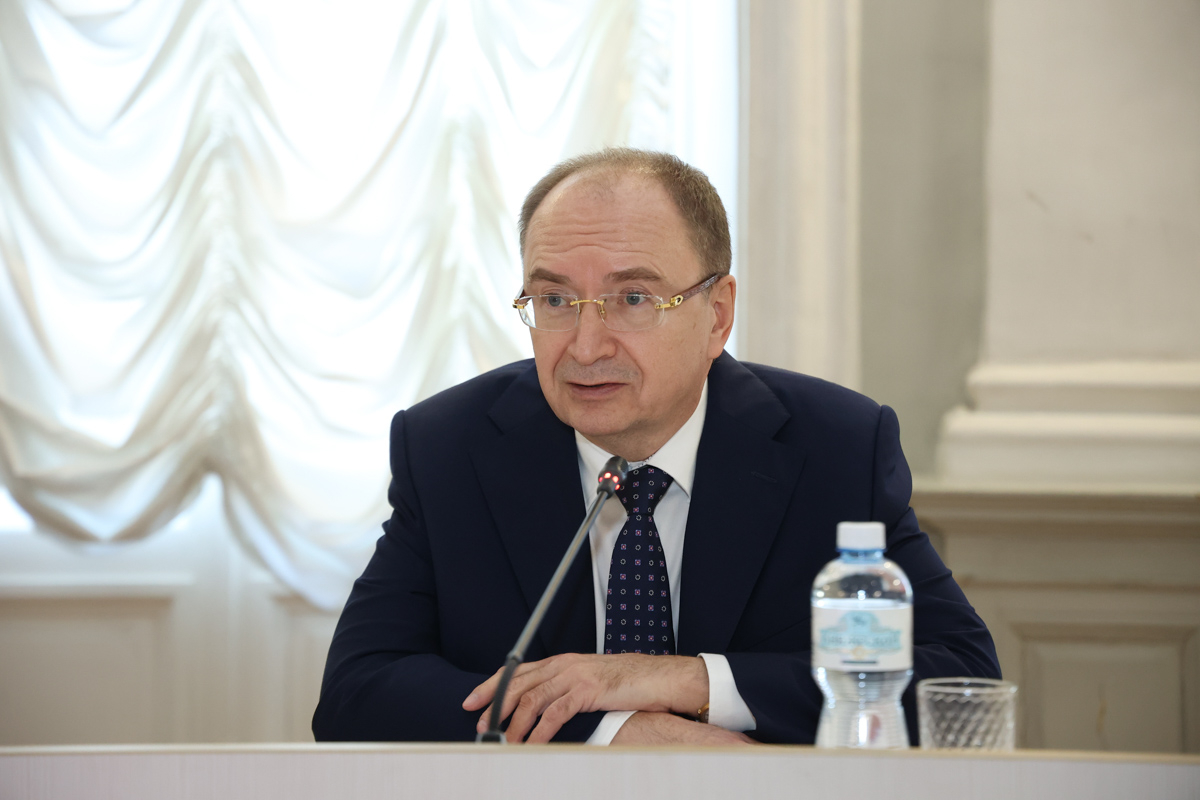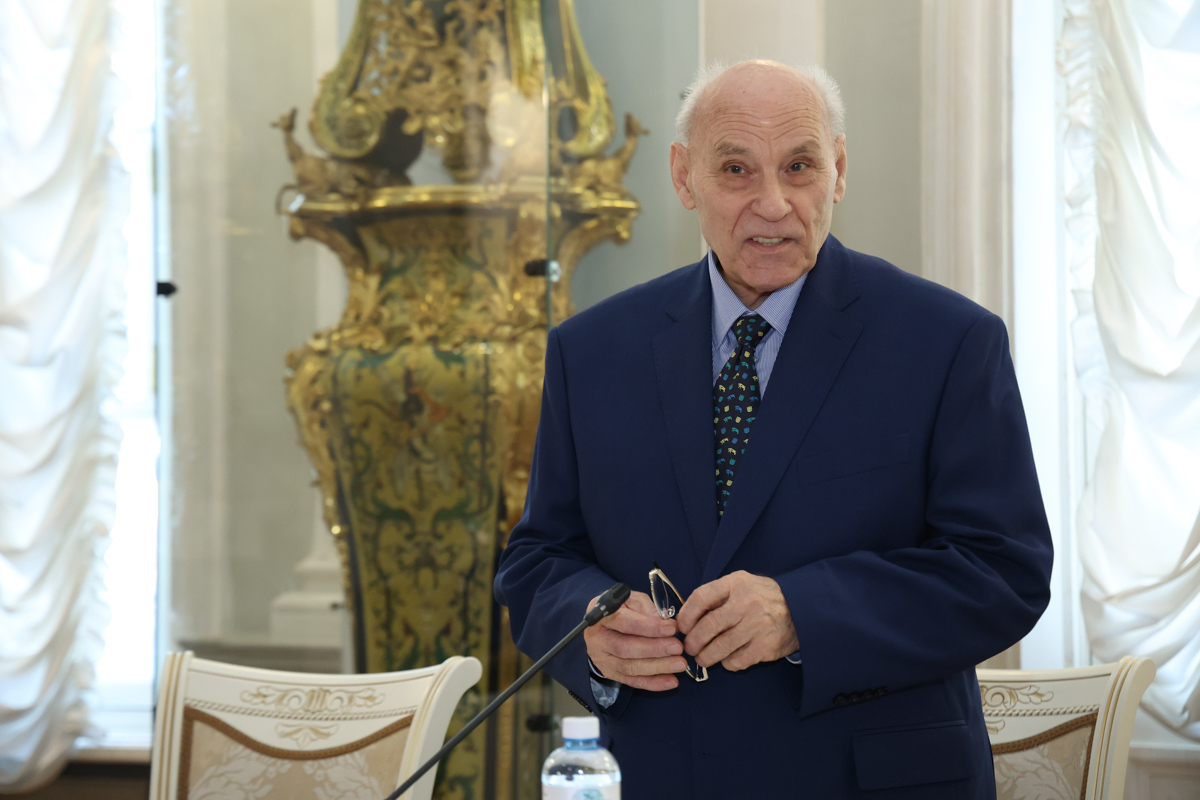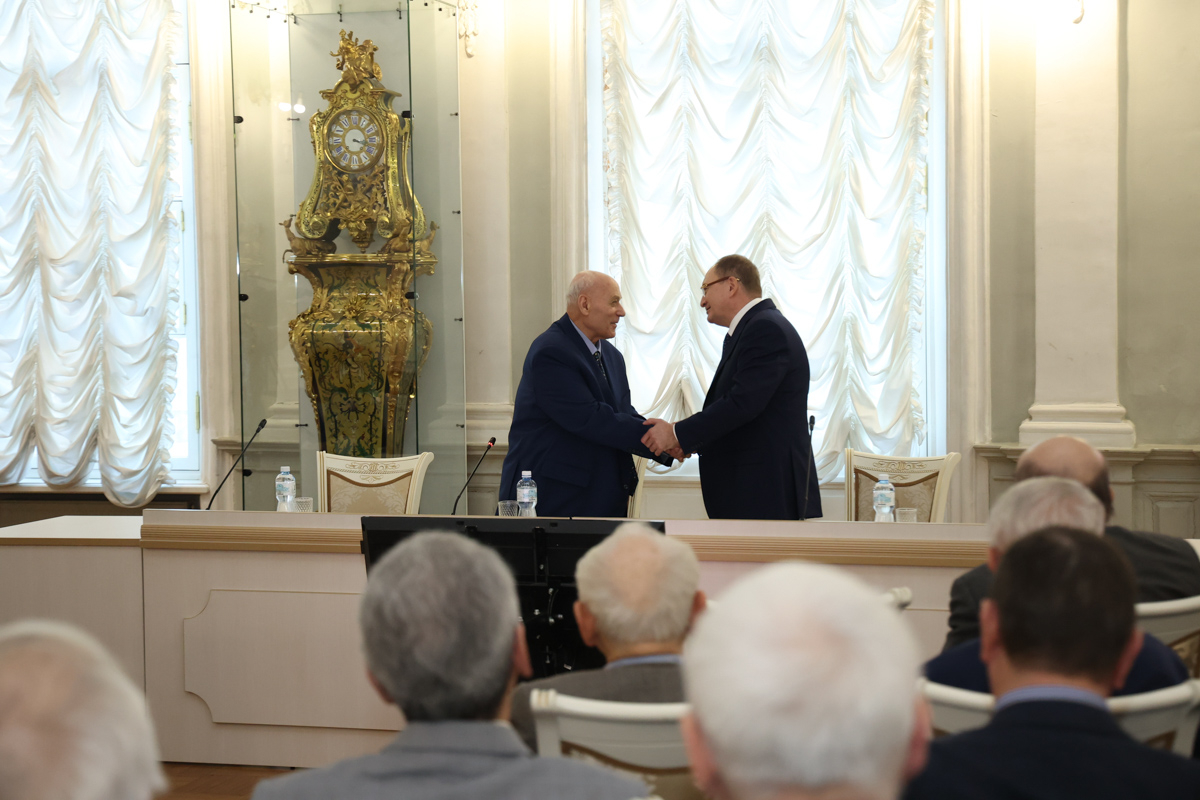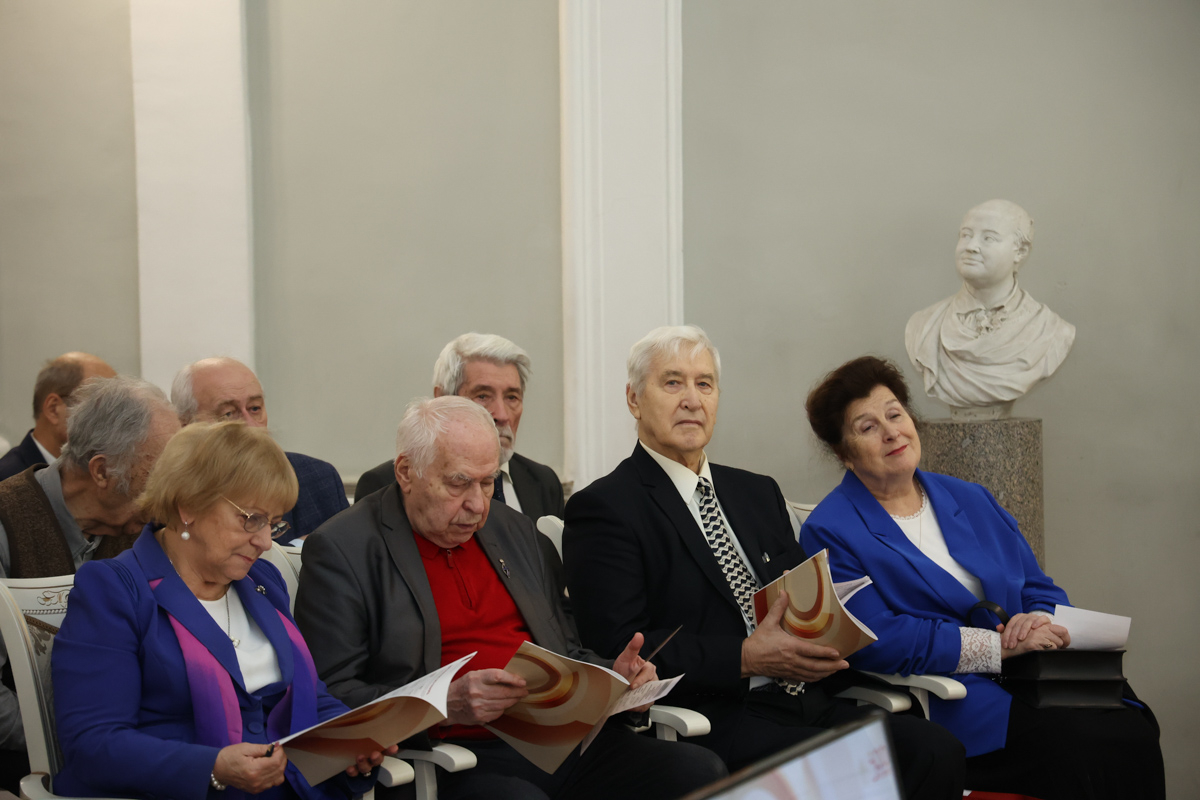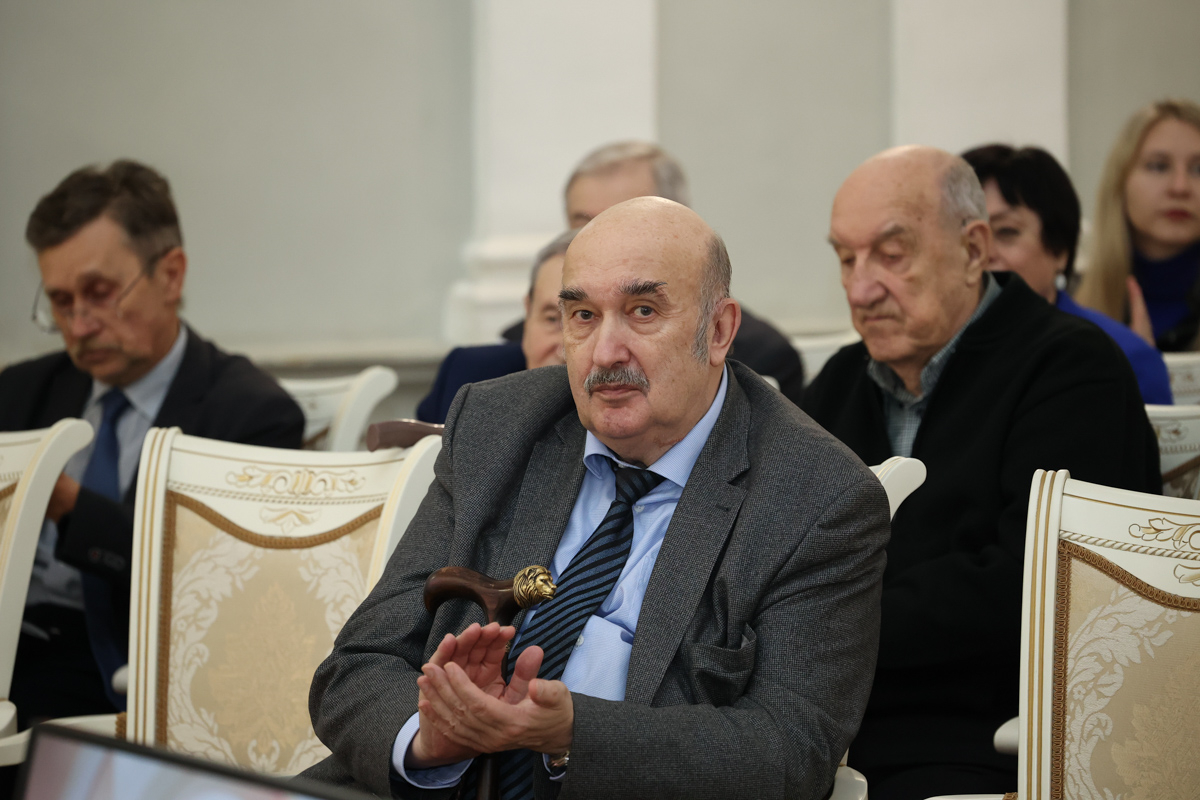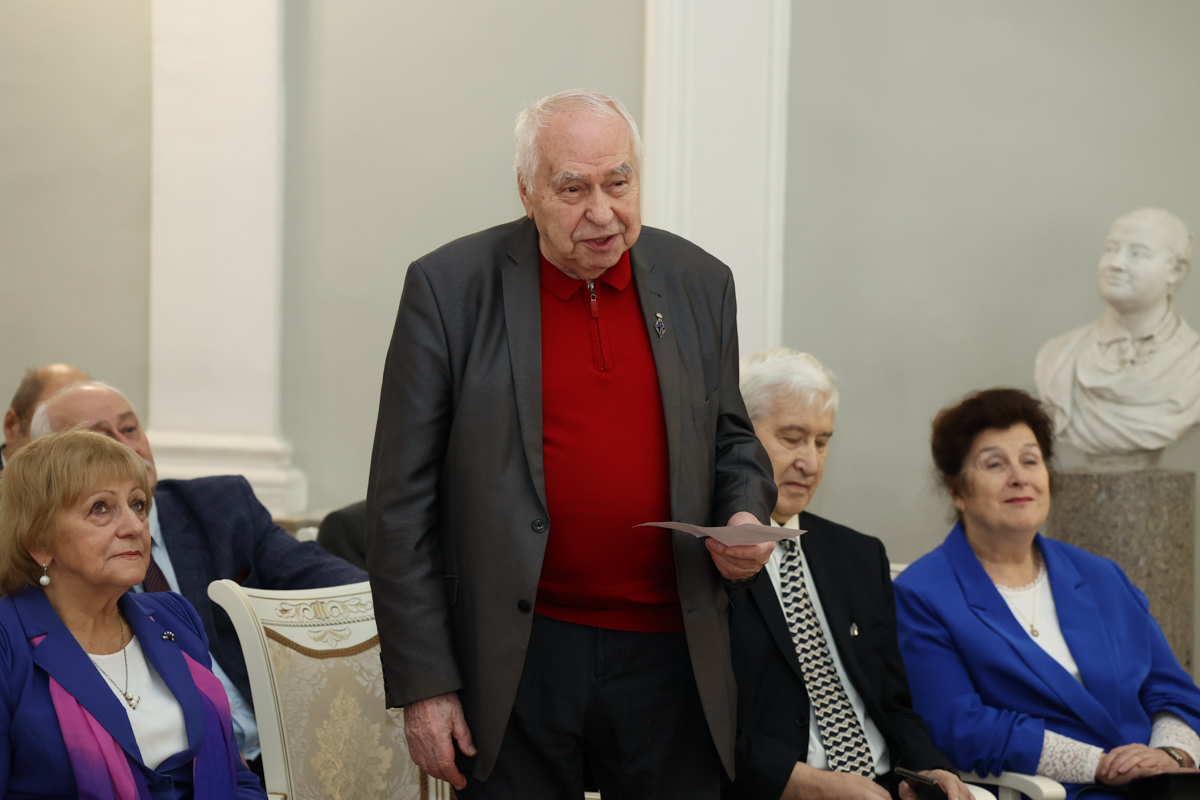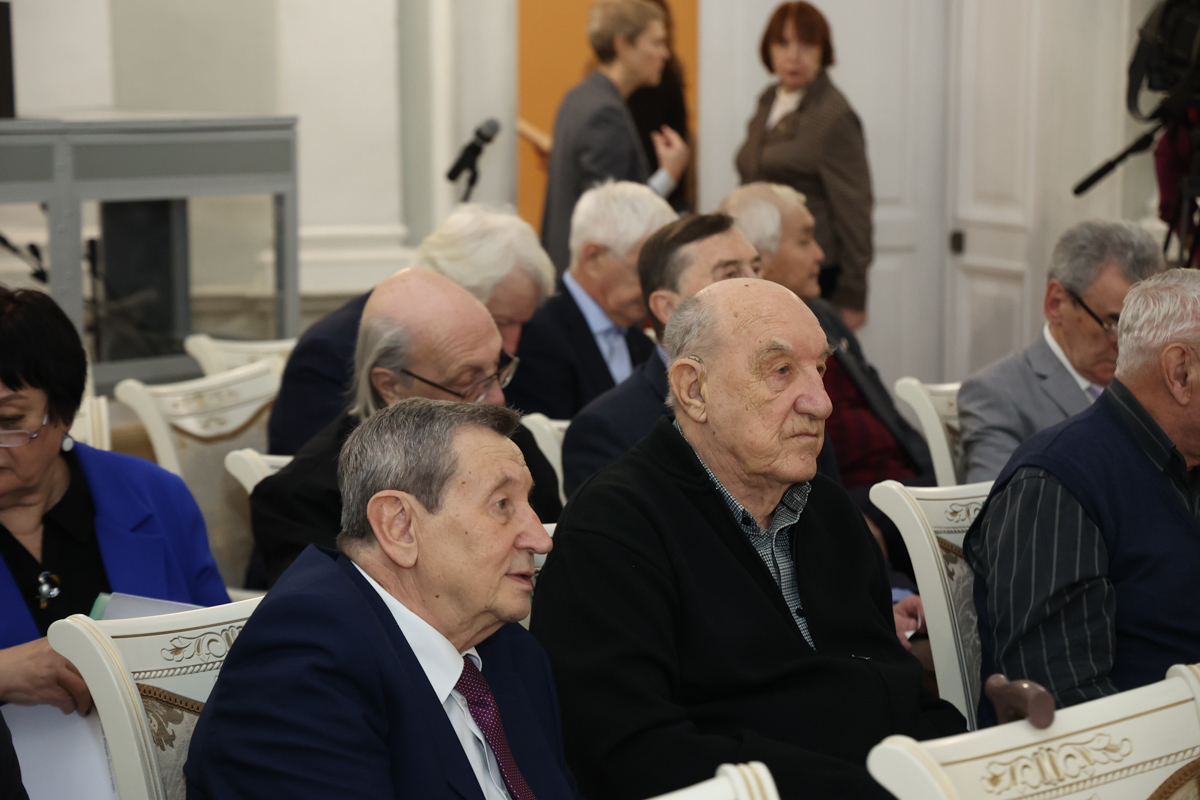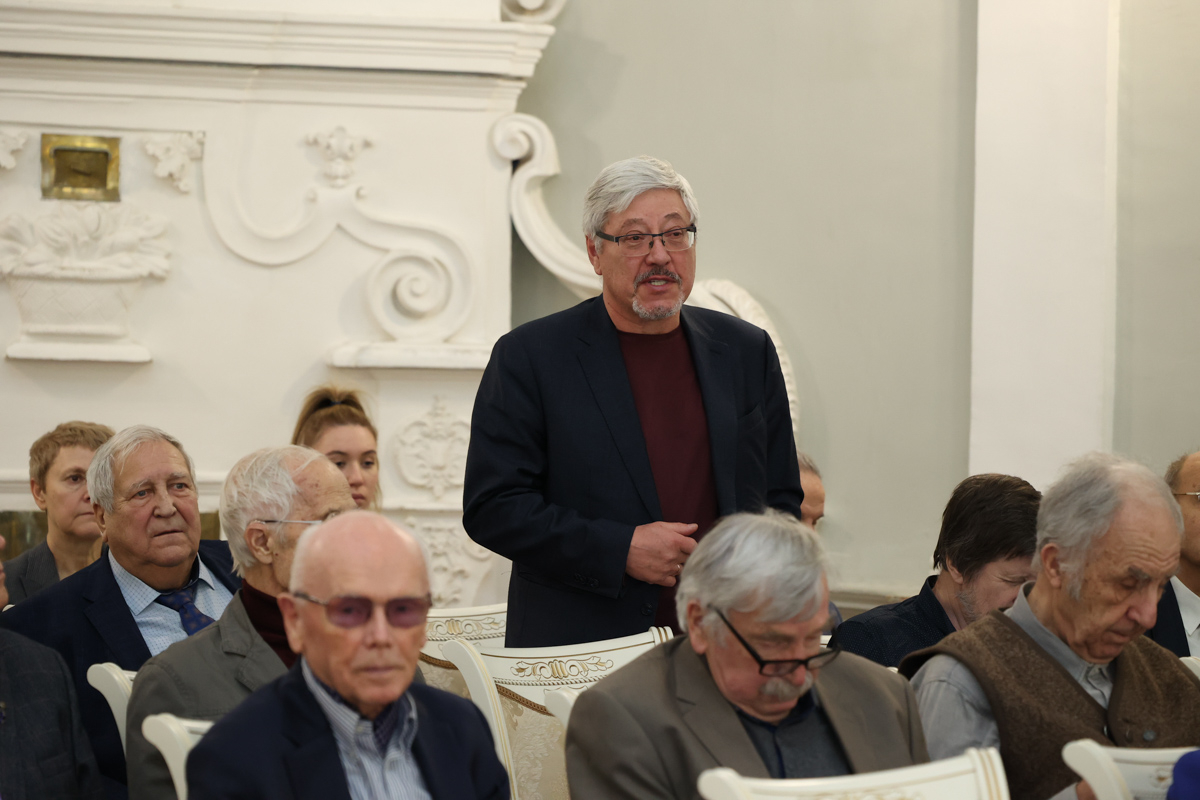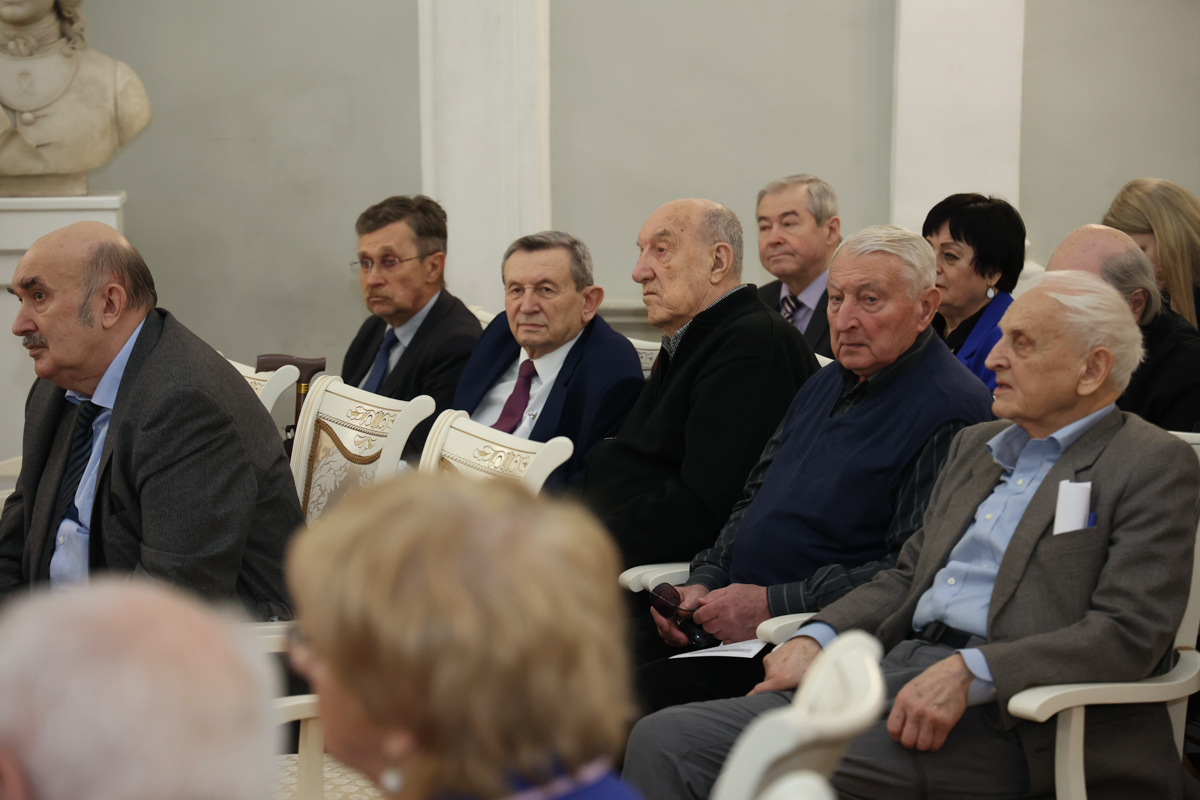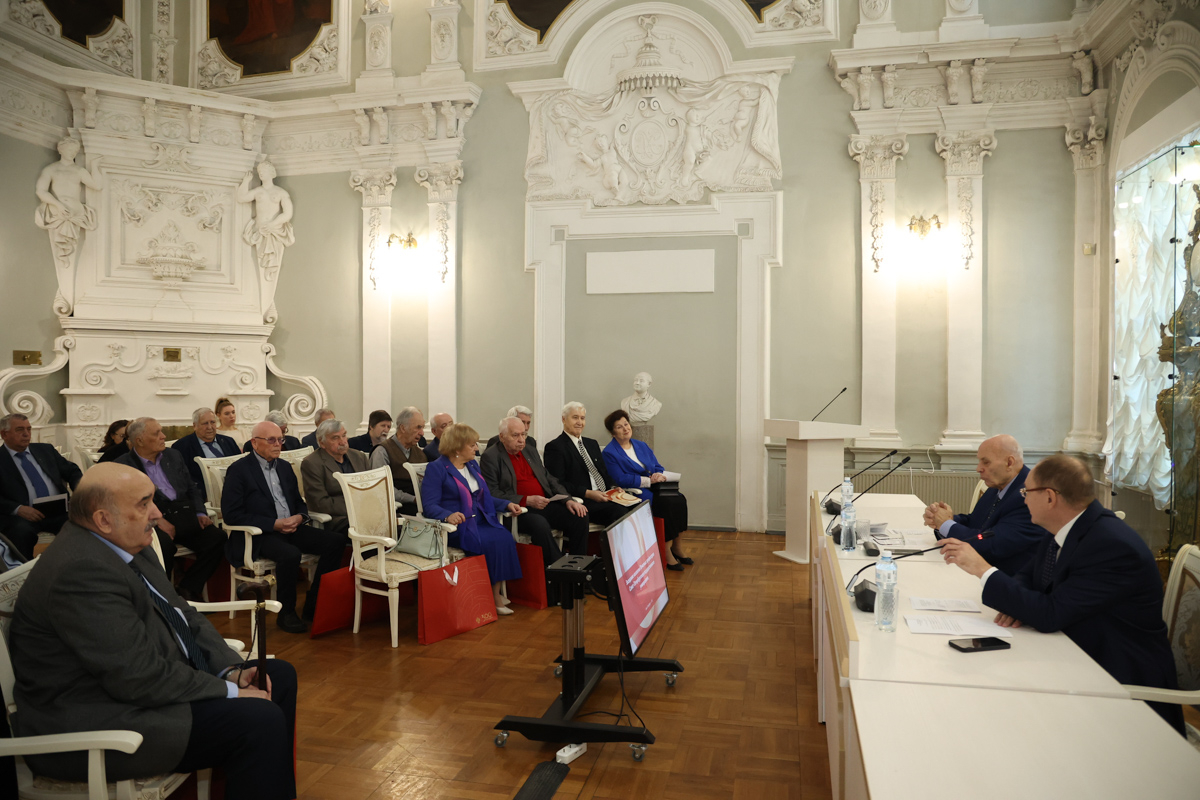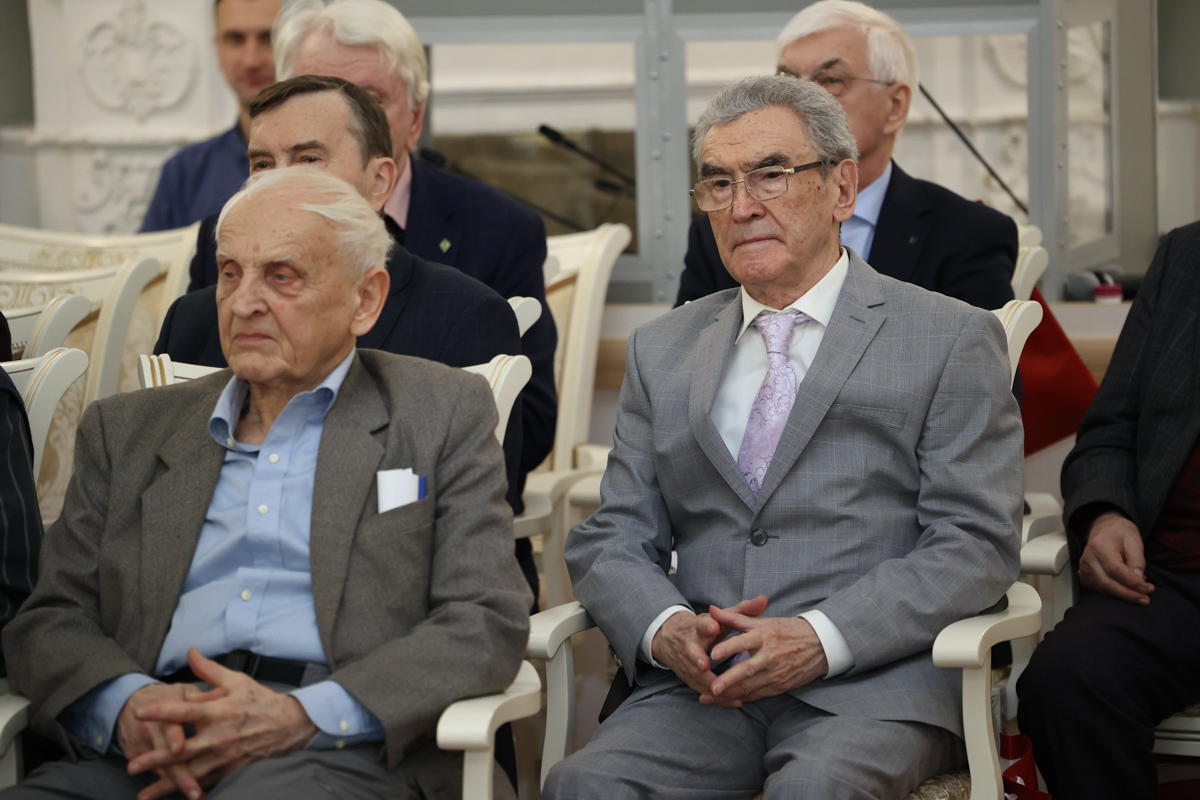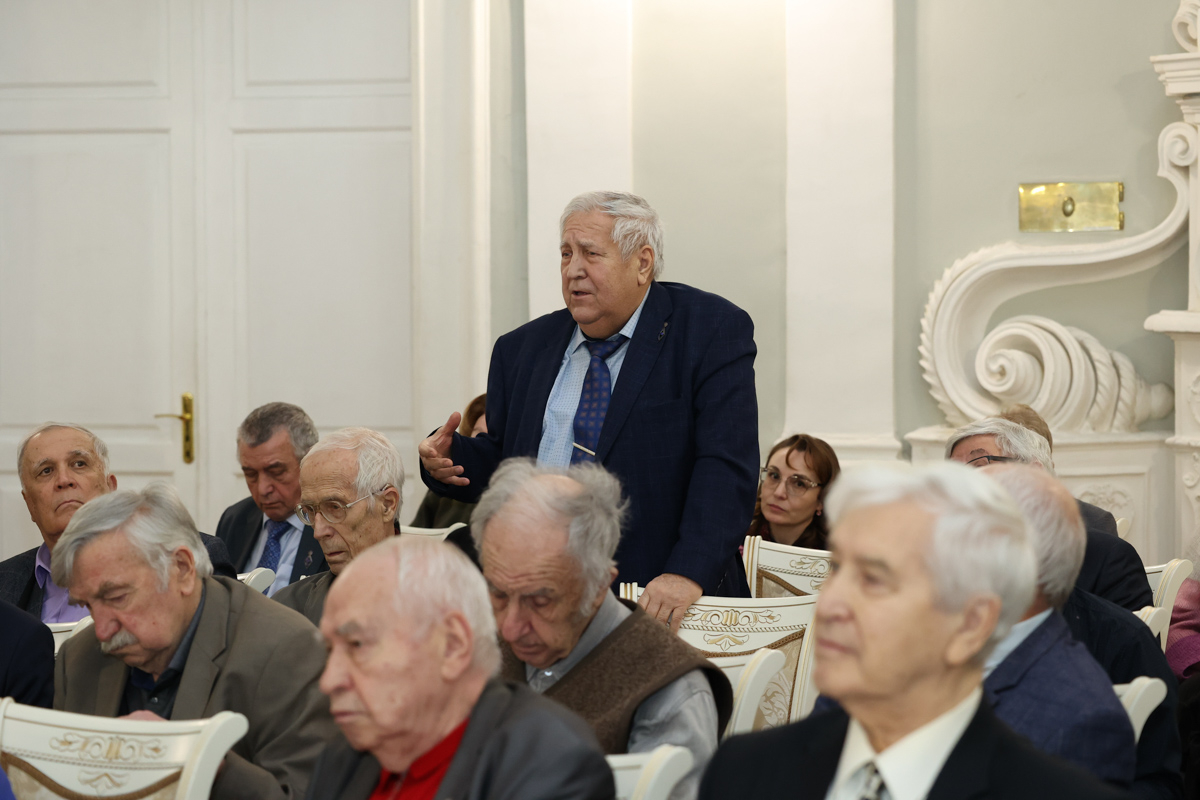Six professors of St Petersburg University receive honorary degrees
A meeting of the Collegium of Honorary Professors of St Petersburg University has been held. The Collegium reviewed candidates for the title of "Honorary Professor of St Petersburg University", as submitted by the Academic Councils of the institutes and faculties.
At the suggestion of Professor Gennady Bogomazov, Chairman of the Collegium, the participants honoured the memory of the Honorary Professors of St Petersburg University: Nikolay Zernov; Nikita Morozov; Boris Novikov; Nikolai Raskov; and Anatolii Sventsitskii.
Nikolay Kropachev, Rector of St Petersburg University, addressed the meeting. He noted that the jubilee celebrations marking the 300th anniversary of St Petersburg University are coming to an end, and the University is now entering the fourth century of its history.
From now on, the foundation day of St Petersburg University, 8 February, will be celebrated together with the entire city as the Day of St Petersburg University. This special date for the University has been included in the list of city holidays. This decision was made by the deputies of the St Petersburg Legislative Assembly.
In the year of the 300th anniversary, the contribution of researchers, academics, and administrative staff of Russia’s oldest university to the development of the country was recognised by its most distinguished alumnus — President of the Russian Federation Vladimir Putin. The University employees were honoured to receive a letter of commendation from the President of the Russian Federation for their merits in research, education, and the training of highly qualified specialists. Many University employees were personally awarded high state honours, recognising the institution’s long-standing and fruitful work.
During the anniversary year, St Petersburg University received many gifts, highlighting its significant contribution to the development of science and education. These included: the launch of a Soyuz rocket bearing the symbols of the University; an anniversary exhibition held in the State Duma of the Russian Federation; the opening of the Peter the Great Fountain; the launch of the branded metro train "300th anniversary of St Petersburg University"; the creation of a gallery of portraits of the University’s rectors; and many other commemorative events.
Always setting high standards, St Petersburg University has been breaking its own records and reaching new heights for many years. For example, in 2024, the number of applications for admission to bachelor’s and specialist’s programmes exceeded 113,000, reflecting a 7% increase compared to the previous year. For several years in a row, St Petersburg University has been the most sought-after university in Russia and among international applicants. In the anniversary year, the competition for government-funded places was 21 applications per place, while for a fee-paying basis, it was seven applications per place.
For 300 years, the mission of St Petersburg University to contribute to the development of Russia has remained unchanged. To enhance the contribution of the national academic school to the social and economic development of the Russian Federation, St Petersburg University has been implementing its own regional cooperation programme, the Mendeleev Research and Educational Cluster, since 2020. The aim of the project is to strengthen the scientific, technological, and economic potential of Russia’s regions and to support regional initiatives in addressing staff shortages in strategically important industries.
As part of the programme, St Petersburg University actively cooperates with the Republic of Karelia, the Omsk Region, the Magadan Region, the Tambov Region, the Ivanovo Region, the Yaroslavl Region, the Republic of Sakha (Yakutia), Perm Krai, and other regions (the honorary professors could learn more about the cluster participants and the joint projects being implemented in the special issue of the St Petersburg University magazine, prepared for the meeting).
St Petersburg University has always been a classical university, combining tradition and innovation. One of the most important components of its success is, of course, its academics, who pass on not only knowledge but also a cultural code to the young people who will shape the future of the country. Today, the University employs more than 4,500 academic and teaching staff, including: 22 members of the Russian Academy of Sciences and the Russian Academy of Education, 23 corresponding members of the Russian Academy of Sciences and the Russian Academy of Education, more than 1,500 doctors of science, and more than 2,600 candidates of science.
Nikolay Kropachev, Rector of St Petersburg University
Nowadays, St Petersburg University is actively involved in developing and promoting accessible, high-quality online education, and fostering an environment for continuous learning from anywhere in the world. For example, St Petersburg University offers more than 450 online courses, with an enrolment of over four million students. Since 2018, the University has been providing distance learning based on Russian high school curricula for teenagers from different countries. In 2024, more than 3,000 children from 25 countries studied this curriculum.
In 2023, the University launched the Online School of St Petersburg University, enabling Russian-speaking school students from around the world to receive a full-fledged education. In the first year of the project, 120 school students in grades 5–10 from 30 countries participated in the programme. The project enables children to receive a Russian school certificate in the standard form and enter universities in Russia without going through the procedure for recognising their educational credentials. The unique project is implemented with the support of the Government Office of the Russian Federation and the Russian Ministry of Education.
The Rector thanked the Honorary Professors for their initiatives, many of which are being successfully implemented as part of the University’s development strategy, and also answered questions.
At the end of the meeting, the Collegium reviewed nine candidates submitted by the Academic Councils of the University’s institutes and faculties for the title of "Honorary Professor of St Petersburg University". By secret ballot, the members of the Collegium recommended six candidates to the Academic Council of St Petersburg University for the title of Honorary Professor.


